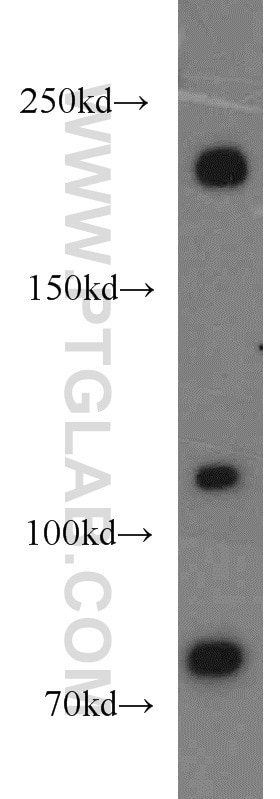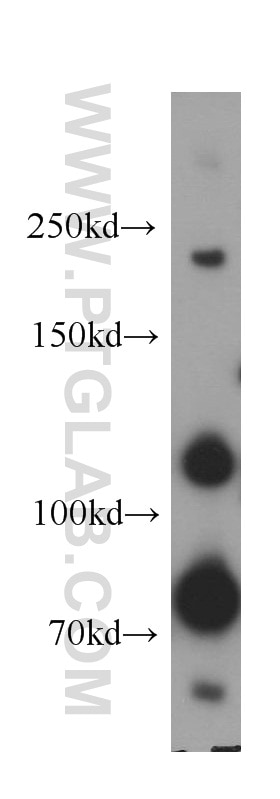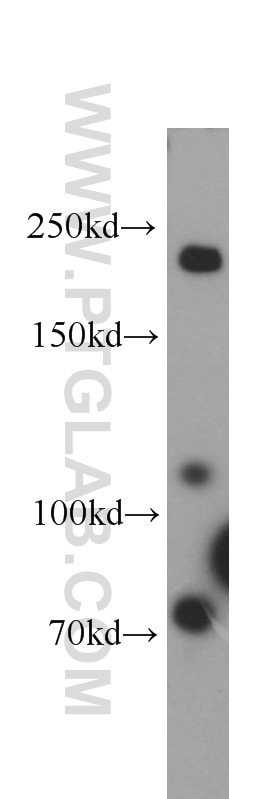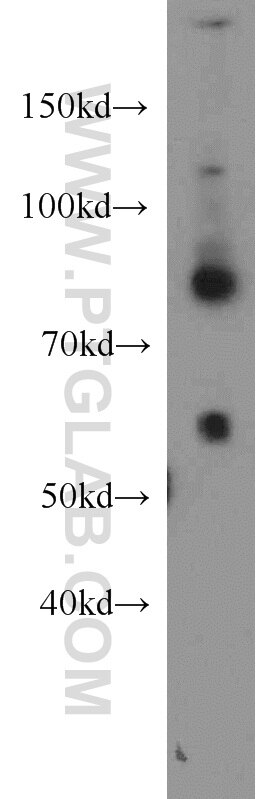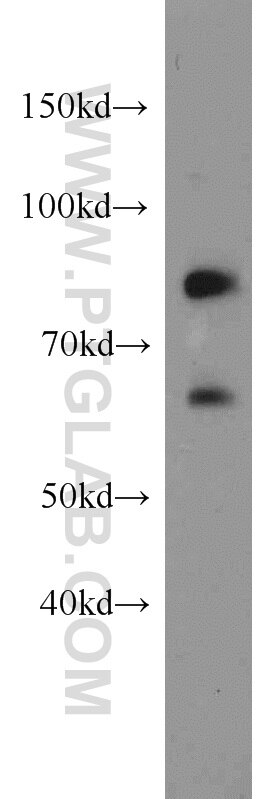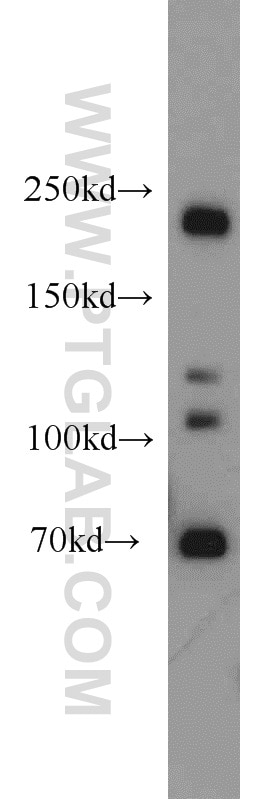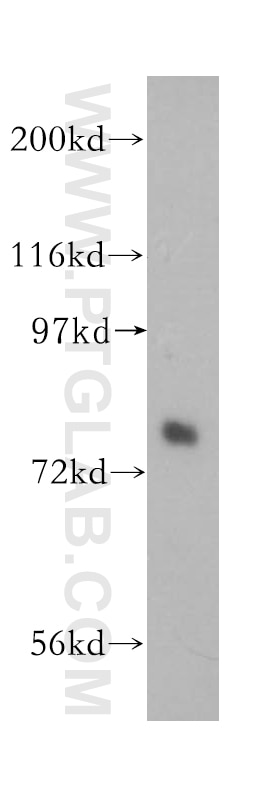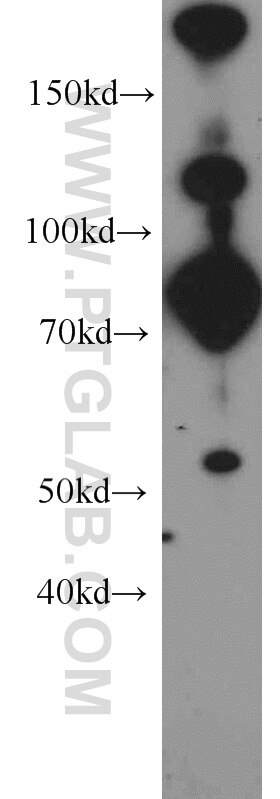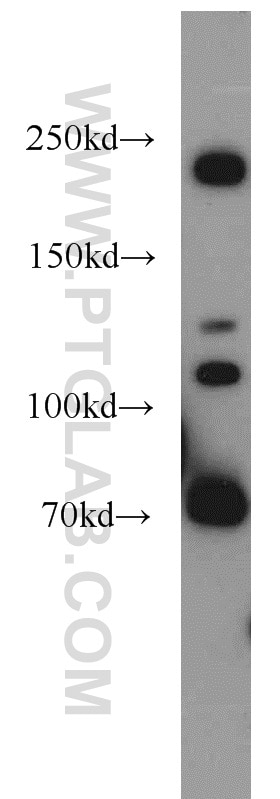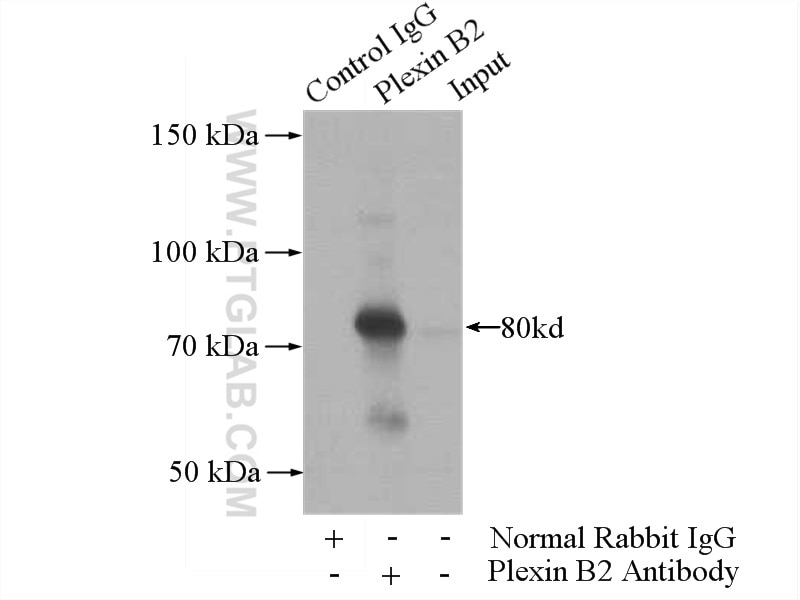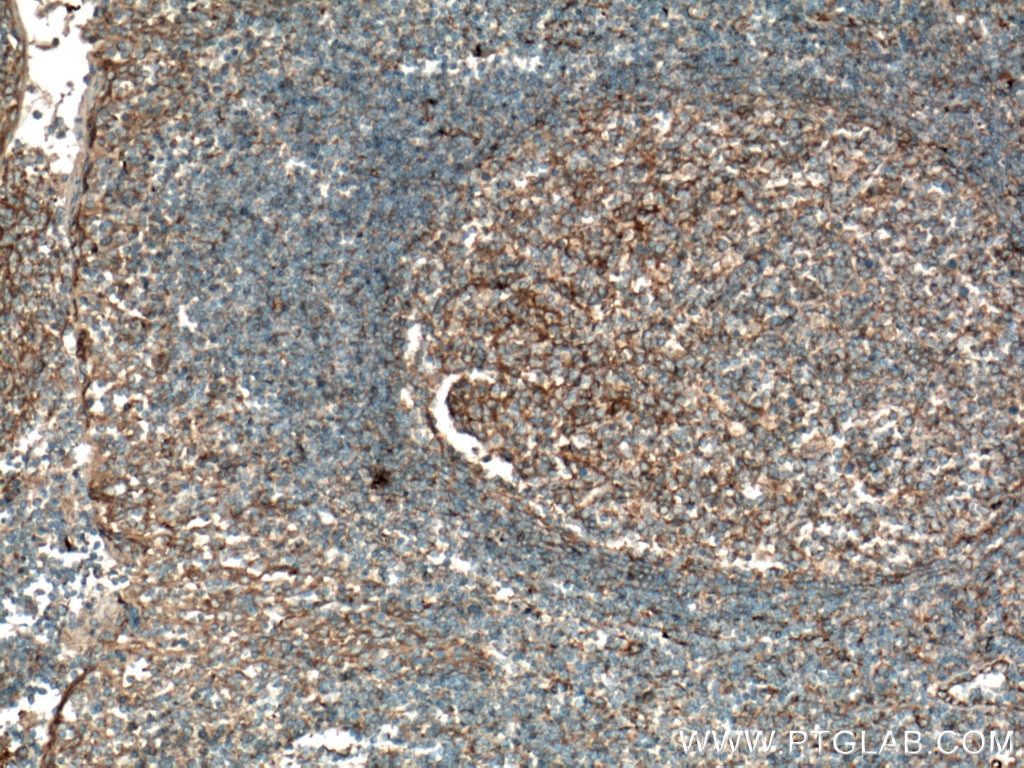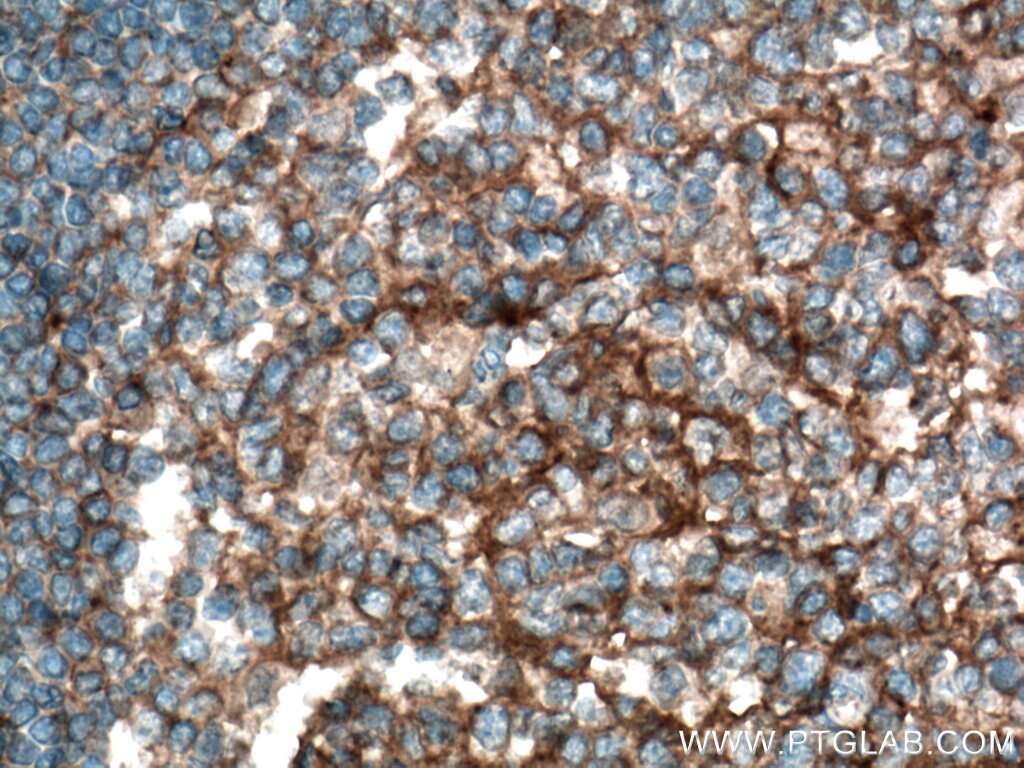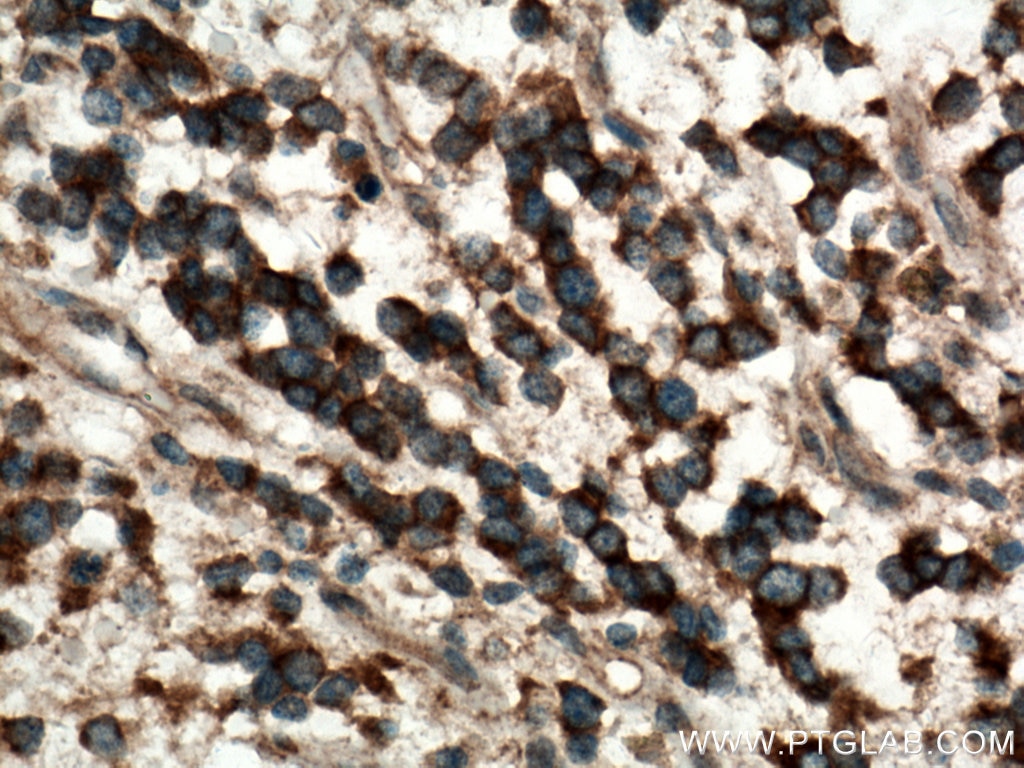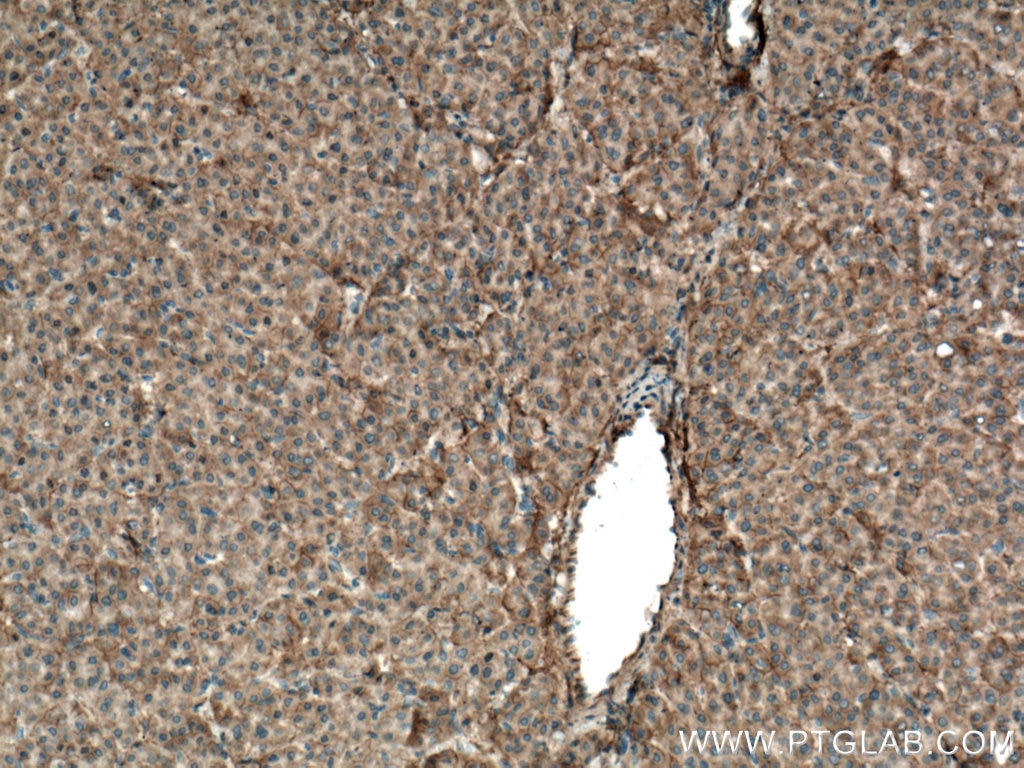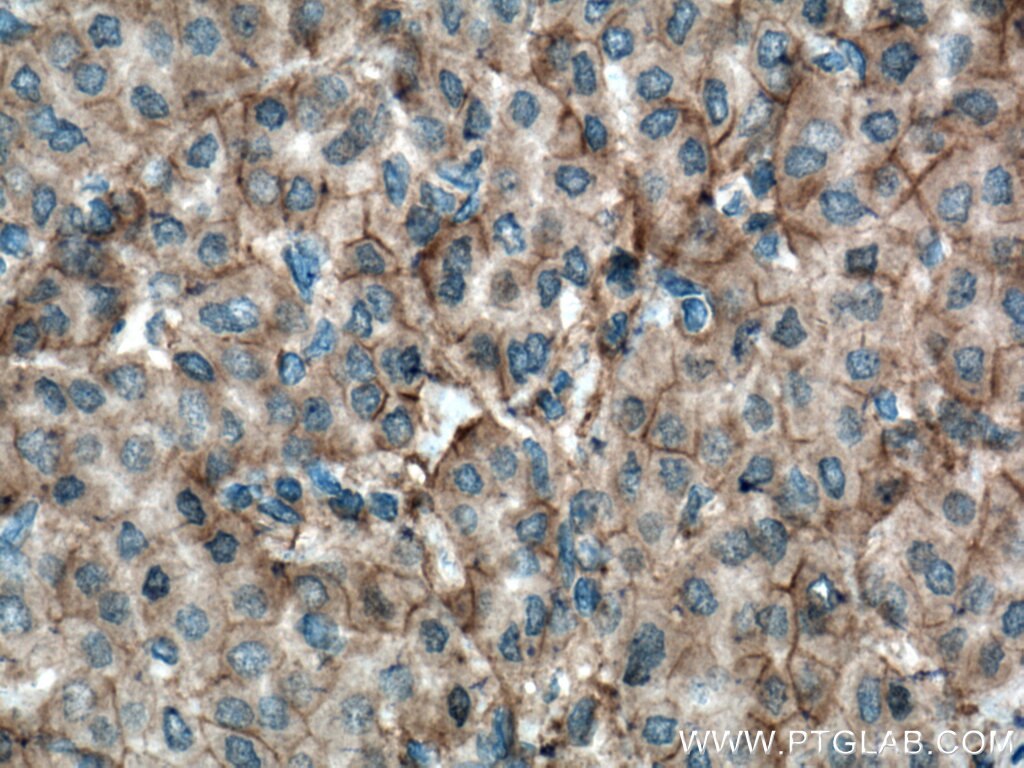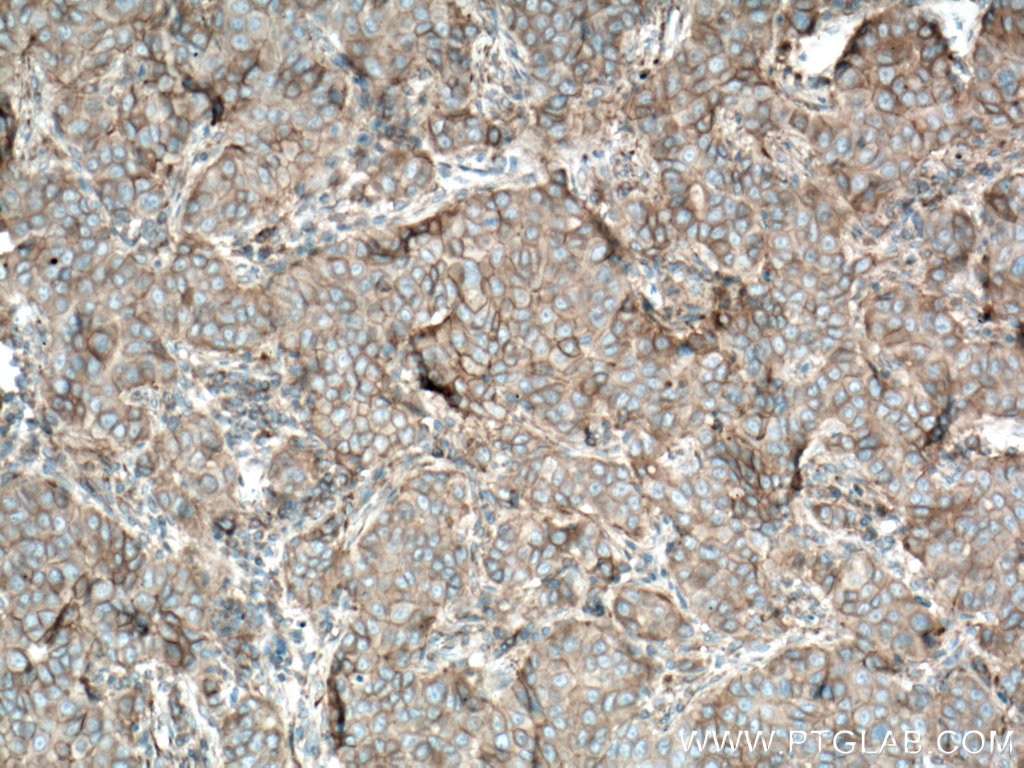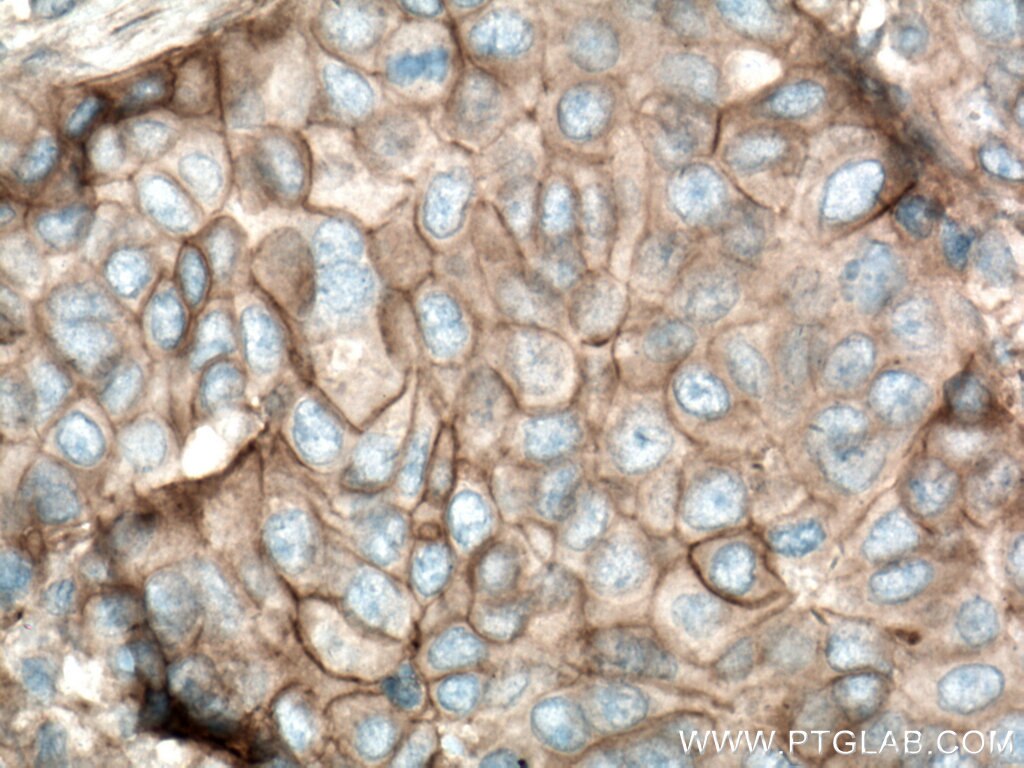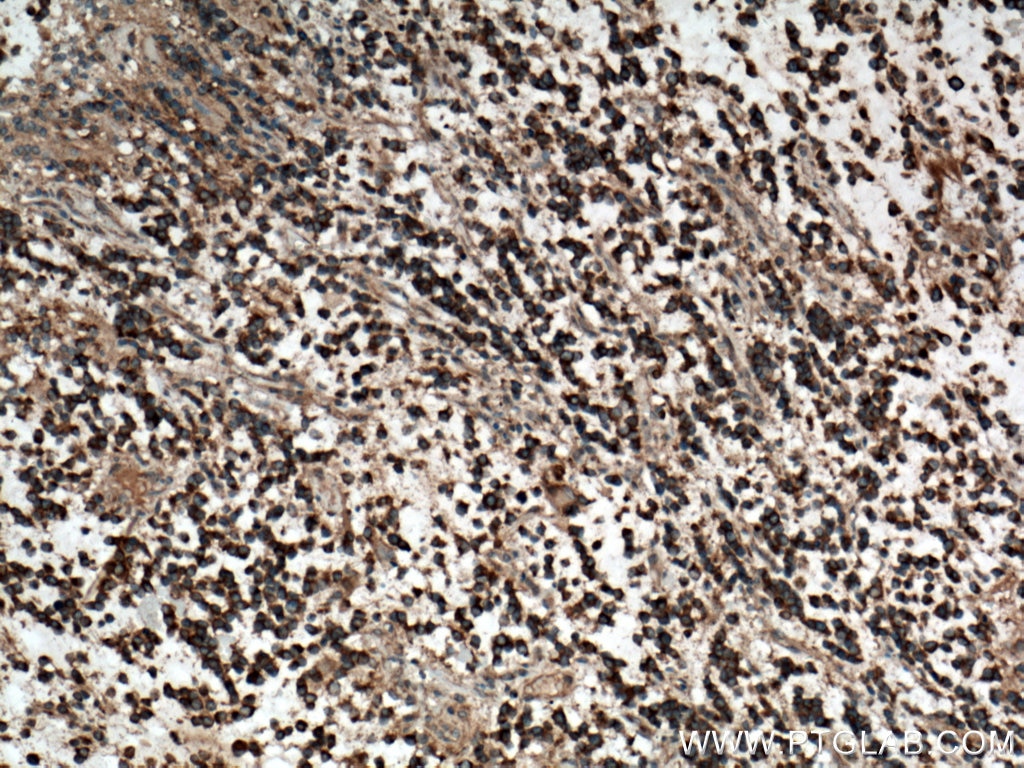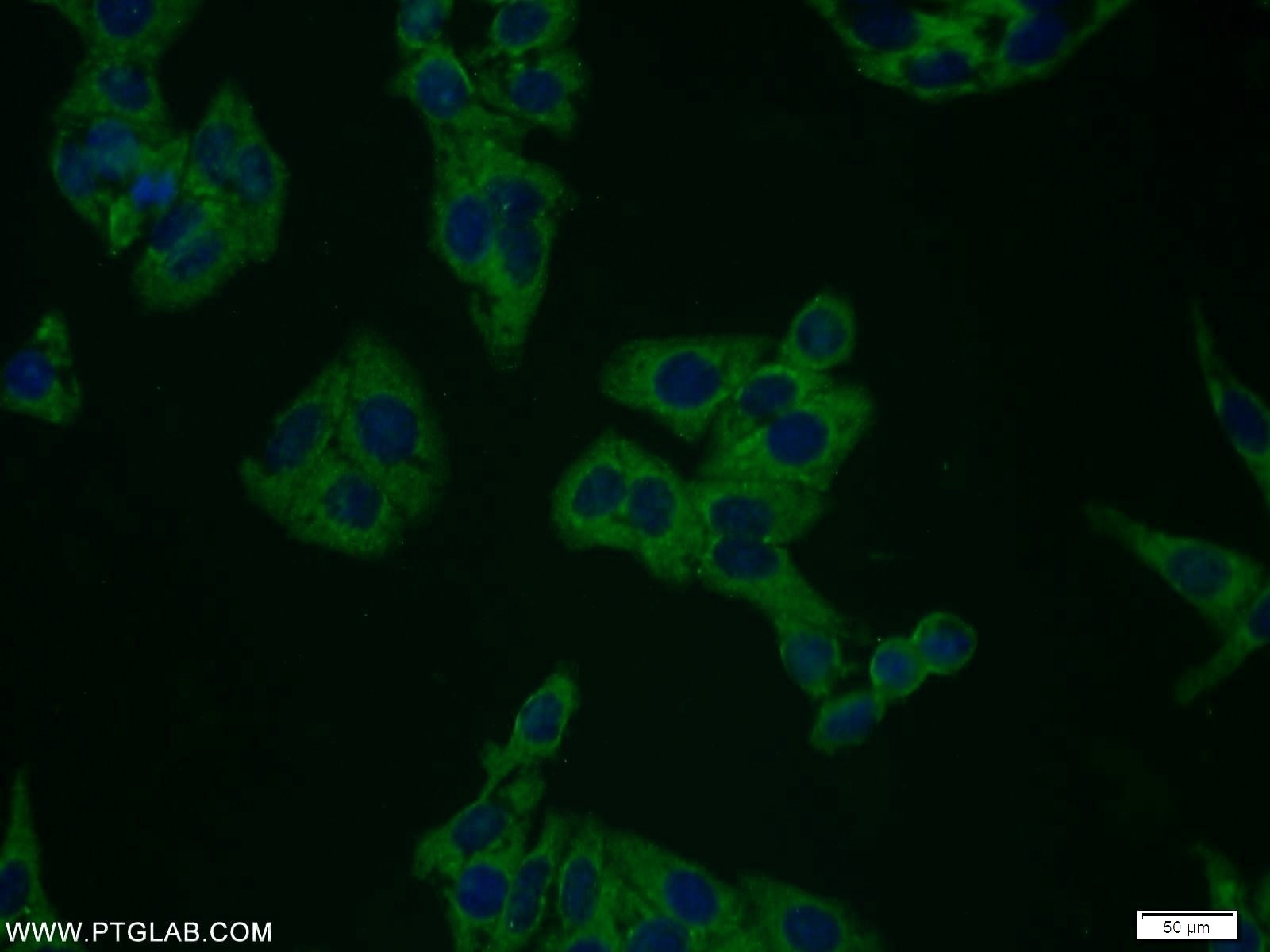Tested Applications
| Positive WB detected in | A549 cells, HEK-293 cells, HeLa cells, HepG2 cells, human brain tissue, MCF-7 cells, mouse liver tissue, mouse ovary tissue |
| Positive IP detected in | mouse liver tissue |
| Positive IHC detected in | human tonsillitis tissue, human liver cancer tissue, human breast cancer tissue, human gliomas tissue Note: suggested antigen retrieval with TE buffer pH 9.0; (*) Alternatively, antigen retrieval may be performed with citrate buffer pH 6.0 |
| Positive IF/ICC detected in | HepG2 cells |
Recommended dilution
| Application | Dilution |
|---|---|
| Western Blot (WB) | WB : 1:500-1:1000 |
| Immunoprecipitation (IP) | IP : 0.5-4.0 ug for 1.0-3.0 mg of total protein lysate |
| Immunohistochemistry (IHC) | IHC : 1:400-1:1600 |
| Immunofluorescence (IF)/ICC | IF/ICC : 1:10-1:100 |
| It is recommended that this reagent should be titrated in each testing system to obtain optimal results. | |
| Sample-dependent, Check data in validation data gallery. | |
Published Applications
| KD/KO | See 3 publications below |
| WB | See 9 publications below |
| IHC | See 2 publications below |
| IF | See 6 publications below |
| IP | See 1 publications below |
Product Information
10602-1-AP targets Plexin-B2 in WB, IHC, IF/ICC, IP, ELISA applications and shows reactivity with human, mouse, rat samples.
| Tested Reactivity | human, mouse, rat |
| Cited Reactivity | human, mouse, chicken, goat |
| Host / Isotype | Rabbit / IgG |
| Class | Polyclonal |
| Type | Antibody |
| Immunogen |
CatNo: Ag0941 Product name: Recombinant human PLXNB2 protein Source: e coli.-derived, PGEX-4T Tag: GST Domain: 1542-1841 aa of BC004542 Sequence: WKRVNTLMHYNVRDGATLILSKVGVSQQPEDSQQDLPGERHALLEEENRVWHLVRPTDEVDEGKSKRGSVKEKERTKAITEIYLTRLLSVKGTLQQFVDNFFQSVLAPGHAVPPAVKYFFDFLDEQAEKHNIQDEDTIHIWKTNSLPLRFWVNILKNPHFIFDVHVHEVVDASLSVIAQTFMDACTRTEHKLSRDSPSNKLLYAKEISTYKKMVEDYYKGIRQMVQVSDQDMNTHLAEISRAHTDSLNTLVALHQLYQYTQKYYDEIINALEEDPAAQKMQLAFRLQQIAAALENKVTDL Predict reactive species |
| Full Name | plexin B2 |
| Calculated Molecular Weight | 205 kDa |
| Observed Molecular Weight | 80 kDa, 240 kDa |
| GenBank Accession Number | BC004542 |
| Gene Symbol | PLXNB2 |
| Gene ID (NCBI) | 23654 |
| RRID | AB_2166424 |
| Conjugate | Unconjugated |
| Form | Liquid |
| Purification Method | Antigen affinity purification |
| UNIPROT ID | O15031 |
| Storage Buffer | PBS with 0.02% sodium azide and 50% glycerol, pH 7.3. |
| Storage Conditions | Store at -20°C. Stable for one year after shipment. Aliquoting is unnecessary for -20oC storage. 20ul sizes contain 0.1% BSA. |
Background Information
Semaphorins, originally identified as axon guidance molecules, have also been implicated in angiogenesis, immunoregulation, and cancer (PMID: 16584533). Plexins are main receptors for semaphorins and are thought to control many of the functional effects of semaphorins. PLXNB2 is one of the three plexin-B family members which participate in axon guidance and cell migration in response to semaphorins. It has been reported that plexin B2 precursor is 240 kDa and can be cleaved into alpha subunit (~170-kDa) and beta subunit (80-kDa) (PMID: 12533544). This antibody raised against 1542-1841aa of human plexin B2 can recognize precursor and beta subunit of plexin B2.
Protocols
| Product Specific Protocols | |
|---|---|
| IF protocol for Plexin-B2 antibody 10602-1-AP | Download protocol |
| IHC protocol for Plexin-B2 antibody 10602-1-AP | Download protocol |
| IP protocol for Plexin-B2 antibody 10602-1-AP | Download protocol |
| WB protocol for Plexin-B2 antibody 10602-1-AP | Download protocol |
| Standard Protocols | |
|---|---|
| Click here to view our Standard Protocols |
Publications
| Species | Application | Title |
|---|---|---|
Nat Commun Neuroblastoma plasticity during metastatic progression stems from the dynamics of an early sympathetic transcriptomic trajectory | ||
Nat Commun Osteoclasts protect bone blood vessels against senescence through the angiogenin/plexin-B2 axis.
| ||
EMBO J Myeloid cells protect intestinal epithelial barrier integrity through the angiogenin/plexin-B2 axis.
| ||
Hum Reprod Whole exome sequencing in unexplained recurrent miscarriage families identified novel pathogenic genetic causes of euploid miscarriage | ||
J Periodontal Res Plexin-B2 Mediates Orthodontic Tension-Induced Osteogenesis via the RhoA/F-Actin/YAP Pathway | ||
bioRxiv Computational ranking-assisted identification of Plexin-B2 in homotypic and heterotypic clustering of circulating tumor cells in breast cancer metastasis
|

